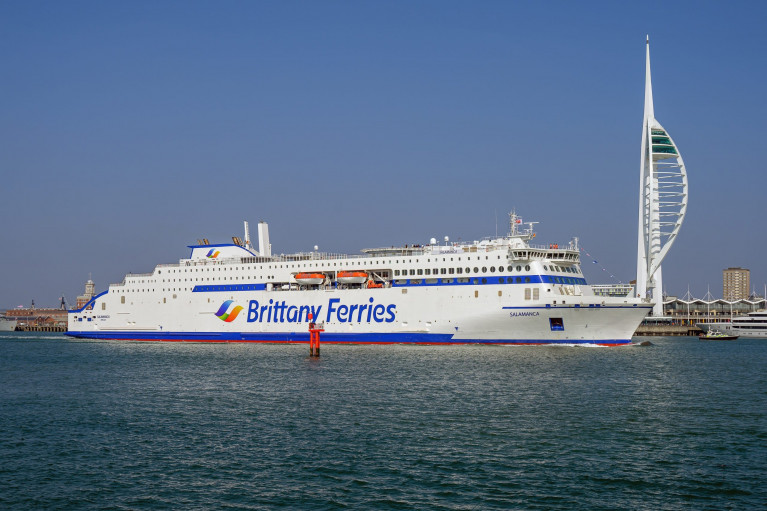Asides delays to Stait of Dover ferry operators as Afloat reported, Brittany Ferries UK crossings to Spain and France are set to be disrupted after a new liquefied gas-powered (LNG) ship broke down days after its inaugural voyage.
Brittany Ferries said an engine fault delayed the departure from Bilbao of its Salamanca ferry by 26 hours.
The vessel powered by LNG, yesterday reported BBC News, was hailed as being cleaner and reducing emissions.
It is due to return to Portsmouth at 22:00 BST with knock-on delays expected for future sailings.
In a statement, the company said the fault was discovered during embarkation for Salamanca's 18:00 departure from Bilbao to Portsmouth.
For more on the first LNG ferry to operate out of the UK, click here.
Last month Afloat reported of Brittany Ferries seasonal Ireland-France route of Cork-Roscoff which resumed service almost a week ago by Armorique.



























































